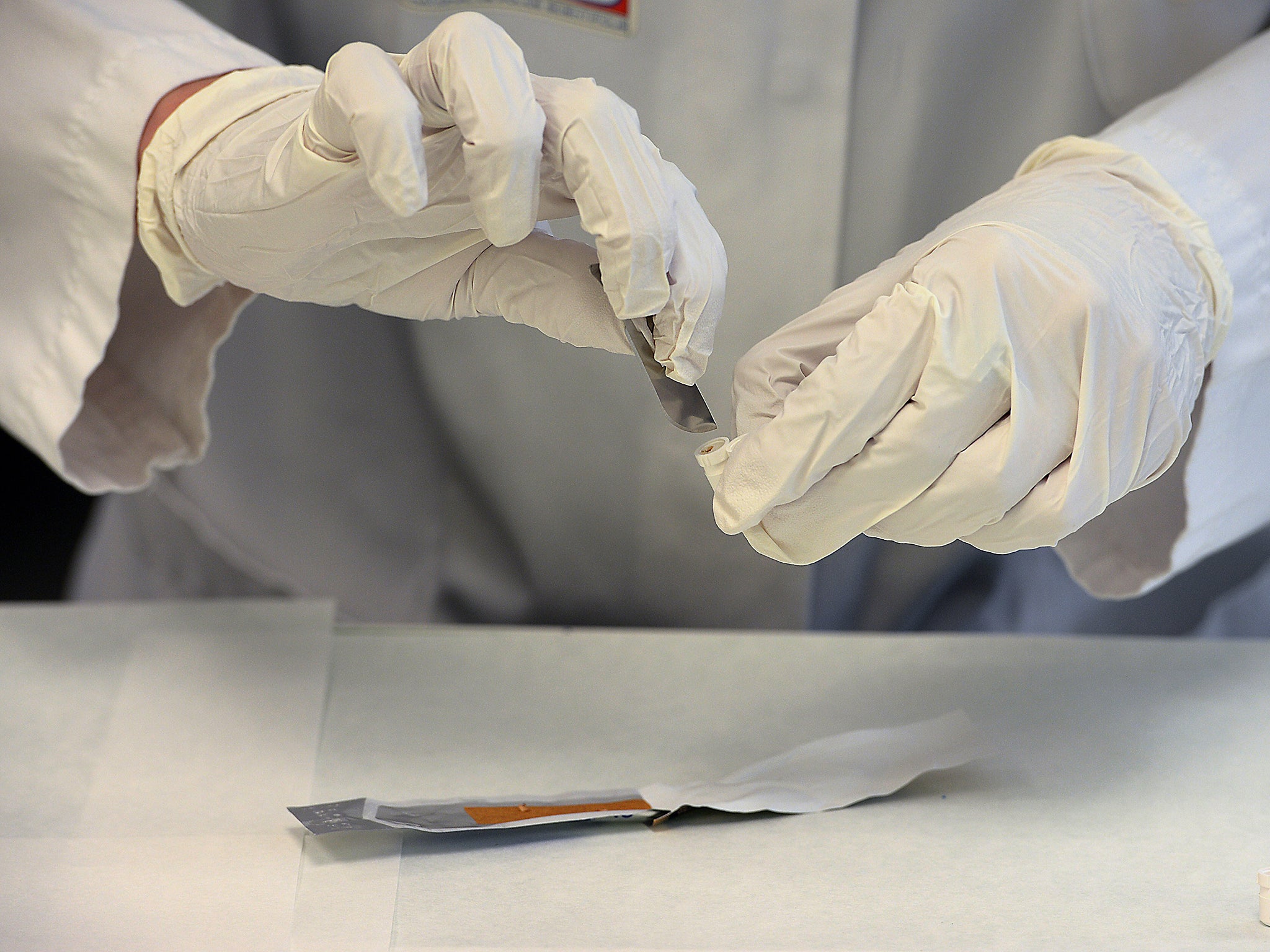Police launch urgent review into 'forensics mishandling' in rape and violence cases
Unnamed scientist involved in all 33 cases being investigated has been suspended by Metropolitan Police

An urgent review of criminal cases including rape and sexual assault has been launched by London's Metropolitan Police over suspected “mishandling” of evidence in its forensics laboratory.
Scotland Yard’s Directorate of Professional Standards has opened a probe into 33 separate investigations to “understand whether there is any risk to the criminal justice process and to take remedial action where necessary”.
The cases span between 2012 and 2017 and include 21 rapes and sexual assaults, and 12 violent crimes, burglaries and drugs offences.
If vital evidence was not handled properly it could enable anyone jailed for the crimes to challenge their convictions, or mistakes could have let perpetrators walk free.
All investigations under review were worked on by a scientist in the Metropolitan Police’s forensic services unit, which investigates evidence from crime scenes including fingerprints, DNA, blood analysis, toxicology and ballistics.
The unnamed employee, who was suspended in March, allegedly failed to complete the requisite forensic examinations and in some cases wrongly informed investigators about their progress.
“All victims in the affected cases have been contacted, where it has been deemed appropriate to do so,” a spokesperson for Scotland Yard said. "In the case of the investigations into rape and sexual assaults, victims have been contacted by a Sexual Offences Investigative Techniques officer.
“In order to be reassured that this issue is not more far-reaching, we have completed a full audit of scientists’ workloads within the department, and are satisfied that there are no other instances of undeclared casework.”
It comes amid a national crisis in forensics, following the closure of the publicly owned Forensic Science Service in 2012.
Techniques including analysis of DNA, fingerprints and digital evidence play a major role in a range of criminal investigations and the move forced police forces to either bring the services in-house – like Scotland Yard - or use private providers.
One firm, Key Forensic Services, collapsed in January, potentially affecting thousands of cases and another was hit by claims of manipulation of results.
Around 10,000 cases handled by Randox Testing Services - three-quarters of which were drug-driving and the rest violent crime, sexual offences and unexplained deaths - were affected across 42 police forces.
The Metropolitan Police case has been referred to the Forensic Science Regulator, which monitors standards across the criminal justice system.
Earlier this year, the watchdog warned that financial cuts to the sector caused by strained police budgets were having “serious consequences”.
Regulator Dr Gillian Tully called for statutory powers to force private companies carrying out forensic investigations under outsourcing agreements up to standard.
“A year ago I warned that funding was too tight, and now even more money has been taken out of the system,” she said in January. “We cannot continue on this path.”
